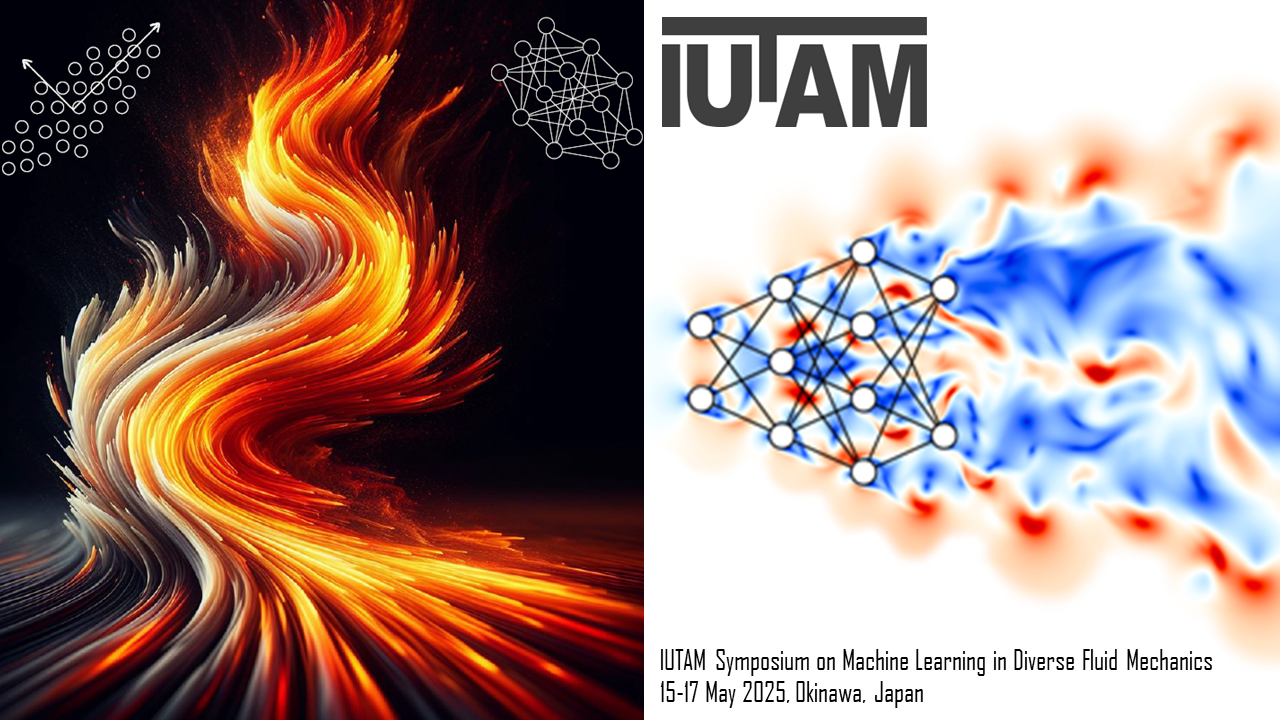Home > Events > Upcoming Symposia >

Modern fluid mechanics research has a history of more than 100 years, and from the end of the 20th century to the present, precise experimental measurements and numerical prediction of fluid flow phenomena at the laboratory level have made remarkable progress, but understanding, prediction, and control of complex flows, such as turbulent flows, multiphase flows, and reacting flows, that appear in a wide range of industrial applications as well as in nature, remain challenging issues due to their strong nonlinearity and multi-scale nature. On the other hand, machine learning has attracted increasing attention in recent years with the attention to big data, and it is expected that machine learning will be utilized in various fields. In the field of fluid mechanics, too, a massive number of machine learning studies have been reported in recent years for prediction of flow fields or force coefficients, turbulence modeling, closure development, reduced order modeling, flow control, and so on. The used machine learning techniques are also diverse, i.e., multi-layer perceptrons (MLP), convolutional neural networks (CNN), generative adversarial networks (GAN), reservoir computing (RC), and so on. However, due to the massive number of studies reported, it is becoming difficult to track all the progress in different areas even within fluid mechanics. Also, exchange of idea on the application of machine learning does not seem to be sufficient among different subdivided research communities such as those of turbulent flows, multiphase flows, and reacting flows, despite that there should be common challenges to overcome. This symposium will serve as a forum for intensively exchanging the states-of-arts of the machine learning studies among different research communities that cover diverse fluid mechanics, in order to accelerate every research. The scientific committee consists of world-leading experts on the application of machine learning to different fluid flow problems. The committee members plan to invite their collaborators or active researchers with closely related backgrounds.